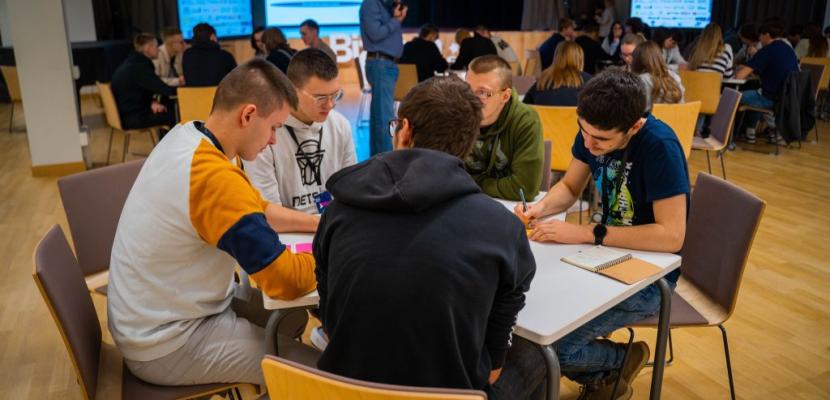
Business Night

About this good practice
Business Night tackles key issues in youth entrepreneurship and innovation, enhancing skills like strategic planning and problem-solving. This three-day hackathon brings together students and industry experts to foster practical experience and networking. Participants work in teams, mentored by professionals, to create and pitch business ideas, with the best awarded monetary prizes. It promotes sustainable business practices and creative thinking, crucial for modern market demands. Key stakeholders include students, educational institutions, local businesses, and municipalities, benefiting from this collaboration and the positive impact on regional development. The event is supported by sponsors who value sustainable entrepreneurship and education, enhancing their public image.
Resources needed
Business Night was funded by EEA and Norway Grants, with a total budget of €19,300. The event team comprised 13 volunteers, 5 tech supports, 10 organizers, alongside 10 industry experts and 4 jury members. Local businesses sponsored additional prizes, with the top 3 business ideas awarded €500 each.
Evidence of success
Business Night was widely praised for its tangible contributions to fostering youth entrepreneurship and innovation. Over its four-year run, the initiative grew significantly, culminating in 80 talented participants in 2024. Key outcomes included the recognition and financial awards given to the best business ideas, such as “Bio Pods,” which utilized leftover breakfast cereal by-products to create biodegradable plant pots.
Potential for learning or transfer
Business Night stands out as a practice that other regions could learn from due to its success in fostering youth entrepreneurship and innovation. The program engages young people in essential skills like problem-solving, teamwork, and project management through real-world applications. It involves industry experts who mentor participants, enhancing practical knowledge transfer. Additionally, the initiative strengthens collaborations between educational institutions and local businesses, vital for hands-on learning. It emphasizes innovative and creative problem-solving, helping youths think outside the box. These aspects not only aid in personal and professional development but also enhance regional economic growth, making it a sustainable model for engaging young talent.
